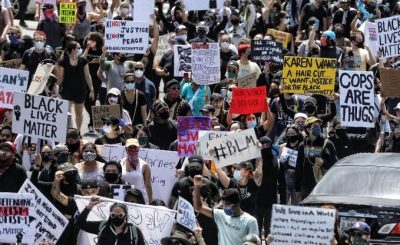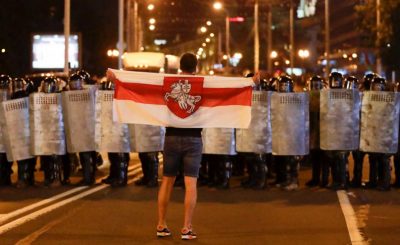Anti-terror laws are on the agenda in every European country. Today a new anti-terror law is about to be voted on in Belgium.
This is not a new situation. All over the world there are special laws by imperialists or fascist dictators against revolutionary or liberation movements. Most of them are even called the same thing: “anti-terror laws”.
All of them criminalise liberation movements in a way that offends against even the warped system of justice in these countries, all of them “condemn” and “sentence” them in a special way. Their aim is to fight against a revolutionary organisation or a liberation movement that is struggling against the state. To eliminate those movements and organisations, they do things which show that “bourgeois democracy” is a fairy tale.
German imperialism was one of the first among Europe to take steps in that direction. As with Paragraph 129, revolutionary organisations faced a lot of special anti-democratic legislation. In the 1950s the Communist Party of Germany [KPD] was forbidden by the German state and condemned to be inactive after a long period of illegality. In this period Paragraph 129 was used against revolutionaries. This paragraph is similar to paragraphs 168 and 169 of the Turkish penal laws. Instead of the expression “armed gangs”, in the Turkish laws the expression “criminal gangs” is used.
But in 1976 this paragraph was found to be insufficient and an appendix (129a) was created. In the same years, using a lot of new laws and rules, opinions and actions against the state and especially organised actions were viewed as a crime.In this period the state put political prisoners in isolation cells and held them under conditions of “white torture”. Also, it became legal to prevent relatives and lawyers of the political prisoners from visiting them. Laws particularly used against the Red Army Fraction and the 2 June Movement were later used against the liberation movements of the neo-colonialist countries. In the time of the Intifada it was used against the Palestine liberation movement, in the period of the Nicaraguan revolution against the Sandinistas. After the occupation of the Turkish consulate in Cologne to protest against the new Turkish constitution, it was used particularly against the Party-Front.
What is the Paragraph 129a about? According to that law, it is a “terrorist” crime to support the views of a “terror” organisation, to make propaganda for such an organisation. It is a serious crime to be a member of such an organisation. And a member of a “terror” organisation can be sentenced for the crimes of another member in the same cruel way. The practice of the anti-terror law in Germany has shown an important and for a bourgeois state quite natural tradition: The anti-terror law, which on paper was neutral, was in practice only used against left-wing and revolutionary people and organisations. Up to now not a single fascist has been sentenced under this law.
In the tradition of that state another thing is quite interesting: The state tries to eliminate the possibility of foreigners being politically active. Refugees who came to Germany for political reasons are not allowed to act on behalf of the situation in their mother country or to support groups that do so. But those rules were always a little vague and “soft”. They weren’t so useful for the state. But if it is necessary to use them against views that are a threat for the state, there is no hindrance to using them anyway. The most concrete example of the recent past is the attempt to silence the Peruvian MRTA [Tupac Amaru Revolutionary Movement] representative in Europe. Isaac Velasco was forbidden by a court to organise meetings, speak to the public or act politically in any way.
On the other hand the work of the police and the state security forces (secret services) was largely organised in a united manner. Together with the Maastricht Treaty and the open borders, the contract of Schengen legitimised the collaboration of police and state security forces, especially against foreigners, revolutionary organisations and liberation movements. But there was one problem to be solved: not all the countries that signed the Maastricht Treaty also signed the contract of Schengen. But after they signed the Amsterdam Treaty last summer it is no longer necessary to sign the contract of Schengen. For example, Greece, which resisted signing the contract of Schengen, agrees to all the points of the contract of Schengen by signing the Amsterdam Treaty. Belgium, which signed the contract of Maastricht as well as Schengen, is about to prepare an anti-terror law similar to the common ones. In reality there is no important left-revolutionary power against the state in Belgium. In other words, Belgium, which gave bourgeois democracy a model to follow, sees the liberation movements and the revolutionary organisations of the world as its real enemy. In short, the developments in Europe show how reactionary and aggressive the imperialists have become.
Source: Halk icin Kurtulus(Liberation for the people) magazine no. 50 11th October 1997




